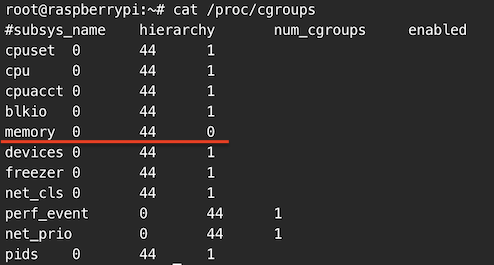FAQ
Table of contents
Does this project support any other container runtimes?
Podman is the only supported runtime.
What are the supported versions of Podman?
ContainerUp supports Podman v3 and v4. Some features can not work perfectly with Podman v3, however.
We suggest you to upgrade to Podman v4. To do that, you may need to upgrade your Linux distribution.
What is a restart policy?
Containers will be restarted when they exit, if the restart policy is set to always.
Containers will also be restarted after a system reboot, if systemd service podman-restart.service is enabled on your system.
This feature is available since Podman v3.3.0. On Debian and Ubuntu, it’s available since Debian 11 bookworm, and Ubuntu 22.04 jammy.
Refer to documents of Podman.
Troubleshoot
Cannot connect to WebSocket
WebSocket is used in ContainerUp, so that the latest status of Podman reflects on your browser, without refreshing the page.
It can be very dangerous to expose ContainerUp to the Internet without proper security measures.
Sometimes some special configurations on the web servers may be required, however, if you access ContainerUp through a reverse proxy.
The statistics data stream is ended
There are usually two possibilities.
I see this notice on the statistics page of a stopped container
If everything works correctly, but only see this notice when you stop a container, you may be using Podman v3, an out-dated version.
As a limitation of Podman v3, statistics data streams aren’t available on a stopped container. Although ContainerUp supports Podman v3, it’s not very worthwhile to work around this.
We suggest you to upgrade to Podman v4. To do that, you may need to upgrade your Linux distribution.
I see this notice immediately after opening the overview page or the container statistics page
Please check the logs of Podman first. You may run this command:
journalctl -u podman -n --no-pager
If you see something like this:

Failed to retrieve cgroup stats: open /sys/fs/cgroup/machine.slice/libpod-7ee2169140bc3a3903f5e6040624809d8edb66d604f305658b2ef8229eefb175.scope/container/memory.current: no such file or directory
Check the status of cgroups. You may run this command:
cat /proc/cgroups
Then you will see the result like this:

#subsys_name hierarchy num_cgroups enabled
...
memory 0 46 0
...
As you can see, the memory controller of cgroup v2 is disabled.
This is the default configuration on Raspberry Pi. To fix this, add cgroup_memory=1 cgroup_enable=memory to /boot/cmdline.txt (all contents should be in one line), and reboot.
Refer to GitHub raspberrypi/linux#3644.
Updating ContainerUp
v0.1.0
Why can’t I update with just a click on the web page?
Currently, only containerized installation can be updated with just a click on the web page. It’s recommended to install ContainerUp using a Podman container.
Container named XXXX exists. Make sure these containers are removed: XXXX, XXXX, XXXX
This message implies previously failed update. This may be caused by a bug. These containers are kept for debugging purpose.
Remove the mentioned containers before you retry the update.